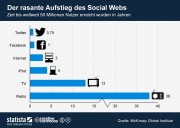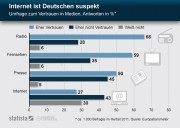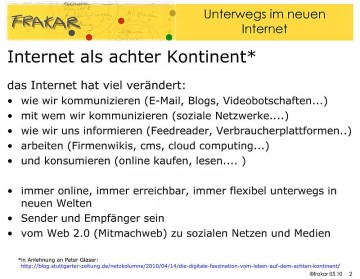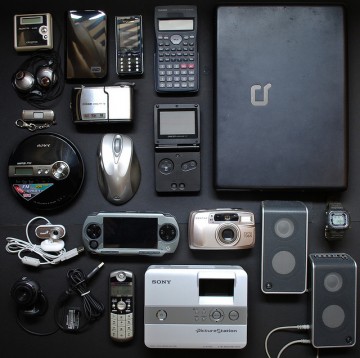October 27, 2013 – Much of the speculation about the future of news focuses on the business model: How will we generate the revenues to pay the people who gather and disseminate the news? But the disruptive power of the Internet raises other profound questions about what journalism is becoming, about its essential character and values. This week’s column is a conversation — a (mostly) civil argument — between two very different views of how journalism fulfills its mission.
Glenn Greenwald broke what is probably the year’s biggest news story, Edward Snowden’s revelations of the vast surveillance apparatus constructed by the National Security Agency. He has also been an outspoken critic of the kind of journalism practiced at places like The New York Times, and an advocate of a more activist, more partisan kind of journalism. Earlier this month he announced he was joining a new journalistic venture, backed by eBay billionaire Pierre Omidyar, who has promised to invest $250 million and to “throw out all the old rules.” I invited Greenwald to join me in an online exchange about what, exactly, that means.
Neue Medien
How Google Glass is going to Innovate Education

Heute (Juni 2013) ist Google Glass nicht für Augmented Reality Anwendungen ausgerüstet – noch gehört das in den Bereich Science Fiction…
beat.doebe.li – Digitale Schulbücher
Das Jahr 2012 wird mir unter anderem als das Jahr der Schul-E-Book-Vorträge in Erinnerung bleiben. An verschiedenen Orten wurde ich gebeten, etwas über die Zukunft des Schulbuchs (Biblionetz:f00151) zu erzählen
• Statista – das Statistik-Portal: Statistiken, Marktdaten & Studien
- Die Tageszeitung in der Krise | Statista
- USA: Digital Nachrichten vor Zeitungen und Radio | Statista
- Überregionale Tageszeitungen im Vergleich
- Mehr Umsatz dank Paywall
- ePaper-Auflagen legen (überwiegend) zu
- Spiegel-Online-Artikel werden am häufigsten geteilt
• Statista – das Statistik-Portal: Statistiken, Marktdaten & Studien
- • Infografik: Printmedien in den USA weit abgeschlagen | Statista
- Internet in den USA schon auf Platz 2 | Statista
• Statista – das Statistik-Portal: Statistiken, Marktdaten & Studien
- Mediennutzung in Deutschland
- Der rasante Aufstieg des Social Webs
- Internet überholt Zeitungen – Umsatz mit Werbung in den USA
- Internet ist Deutschen suspekt – Umfrage zum Vertrauen in Medien
daniel_iversen – Flickr
- social media, social networking, social computing tag cloud
- social media, social networking, social computing tag cloud (2)
Web 2.0 und Social Media Marketing – Folie 2
14. April 2010 EIN PAAR GEDANKEN zu der Frage: Woher kommt eigentlich die Faszination an dieser ganzen digitalen Kommunikationstechnik? Woher kommt dieses Heimweh nach einem Ort, an dem wir noch nie waren, weil wir ihn nämlich nicht betreten können, außer in unserer Vorstellung? Was fasziniert uns so am Netz?
Infographic: The Launch of the Royal Wedding Brand – iCrossing

My Electronic Friends
22.02.2012 Die verhasste Kreidetafel wird bald abgeschafft. IT-Unternehmen sponsorn interaktive Weißwandtafeln für einen anschaulicheren Unterricht. Ein kluger Schachzug?
23.02.2012 Die junge Generation stört sich an traditionellen Geschäftsmodellen und Obrigkeitsdenken. "Das Wichtigste ist Freiheit", schreibt der polnische Dichter Piotr Czerski.
13.01.2012 Schullehrer werden zu Webmastern. Auf der größten Bildungstechnik-Messe "Bett" liefern sich IT-Firmen eine Schlacht um den milliardenschweren Markt.
Danny Nicholson – Flickr
- BETT 2012
- eInstruction @BETT 2012
- Promethean table @BETT 2012
- BETT 2012 Whiteboard
La nouvelle technologie au service des élèves : Le Smart Board en CM2

Kritische Anmerkungen zum Mikrobloggen auf dem educamp 2011
Twitter ist eine wunderbare Sache. Wenn man es sich in der persönlichen Echokammer behaglich machen möchte, muss man lediglich die Menschen (und Maschinen), denen man "folgt", sorgsam auswählen und bekommt prompt und kontinuierlich Informations-Sushi in Form nützlicher Link- und Lesetipps auf die Timeline serviert, kann sich kommod per Hashtag an die Fersen diverser Trends heften, Follower-Netzwerke pflegen, in Ägypten eine Revolution befeuern, live dabei sein, wie #ows-Anhänger aus dem Zuccotti-Park geprügelt werden, in Erlangen einen Flashmob organisieren oder per #followerpower ansonsten aporetischen Situationen entkommen.




















